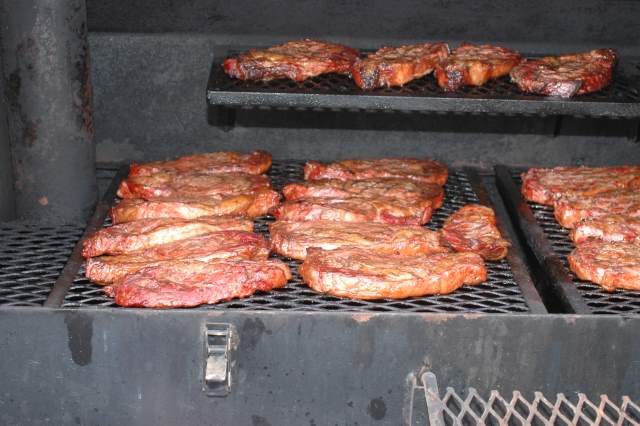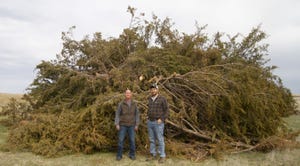WHO weaves a tangled web
November 11, 2015

The World Health Organization (WHO) did some backpedaling, kind of, regarding the recent evaluation of the carcinogenicity of consuming red meat and processed red meats, conducted by its International Agency for Research on Cancer (IARC).
A few days after IARC classified consumption of processed red meats as carcinogenic to humans and eating red meat as probably carcinogenic, WHO issued a statement, saying in part, “IARC’s review confirms the recommendation in WHO’s 2002 diet, nutrition and the prevention of chronic diseases report, which advised people to moderate consumption of preserved meat to reduce the risk of cancer. The latest IARC review does not ask people to stop eating processed meats but indicates that reducing consumption of these products can reduce the risk of colorectal cancer.”
Lots of us consuming types find it difficult to square that statement with letting the initial classification stand. Folks at the North American Meat Association (NAMI) say the distinction is important, though.
“‘The latest IARC review does not ask people to stop eating processed meats…’ seems intent on clarifying that its review was not a risk assessment, it was a hazard assessment,” according to a NAMI statement. “The distinction is nuanced, but important. Hazard assessments identify things that could ever, possibly, under some circumstance and at some level, cause a risk of cancer.”
Nuances aside, the IARC-WHO evaluation of red meat and processed red meat cracks open the door for other fools.
NAMI points out the pro-vegan animal rights Physicians Committee for Responsible Medicine (PCRM) seized upon the report as another tool to force meat off the plates of schoolchildren.
Dig a little deeper, and the IARC-WHO debacle may point to something more complicit.
Julie Kelly and Jess Stier suggest in a Nov. 9 Wall Street Journal commentary that the carcinogenicity evaluation is about the global warming debate rather than human health.
Climate talks—the Conference of the Parties of the United Nations Framework Convention on Climate Change—will take place in Paris Dec. 7-8. WHO is headquartered there and last month released a report for policy makers titled Reducing Global Health Risks Through Mitigation of Short-Lived Climate Pollutants.
Head to page 7 in that document and you will find: “On the demand side, shifting towards diets rich in plant-based foods is a key mitigation strategy, particularly among affluent populations. This approach can help reduce certain diet-related non-communicable disease risks while also slowing the trajectory of rising methane emissions associated with livestock production.”
In other words, get rid of livestock and reduce global health risk.
Speaking to the WHO report, Stier and Kelly say, “Much of this is aimed at the U.S., which is the world's top producer of beef and it’s third-largest producer of pork. Americans, along with Australians and Argentines, are among the world's biggest per capita meat-eaters. Now climate busybodies can shout that meat causes cancer and is as bad for the person eating it as it is for the planet.”
Whether or not the coincidental timing of both WHO reports was intentional, both do plenty to subsume consumer trust in organizations supposedly basing decisions on sound science.
In the meantime, it’s hard if not impossible to blame any of the current cattle market woes on the IARC evaluation. By and large, and to their credit, U.S. consumers seem to have IARC’s number and largely ignored the report and its backstab at true science.
You might also like:
65 photos that celebrate cowgirls & cattlewomen
5 tips for getting the most cash for your cull cows
3 steps to negotiating a great cow lease
Is ranching an art or a science or both?
Crunch the numbers before you buy those heifers
Why you must remove net wrap on round bales before feeding to cattle
You May Also Like
.png?width=300&auto=webp&quality=80&disable=upscale)


